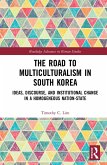Seminar paper from the year 2005 in the subject Ethnology / Cultural Anthropology, grade: 88%, Venice International University, language: English, abstract: Japan and Germany, two of the most powerful nations in the world, are strongly connected, but still the people in these countries know very few about each other. In this work the reader should get an overview about both countries so that somebody who doesn't hava a good knowledge gets an impression of these countries. In interviews people from both countries were asked what they think about each other, what prejudices they have, how they see the relationship between their countries and which experiences they have made in their own countries. For sure, this can not be seen represantative for all inhabitants, but it gives an impression of the thoughts of younger people in a world, which becomes closer and closer and in which no country can stand isolated. A generalization e.g. "The Germans, or the Japanese do..." isn't adequate, because the scientists cannot say that a whole country behaves equally. Because of the process of globalization it is essential for politicians and managers who work in Japan and reversly to know about the customs in the host country. That is the point, where the work of a modern cultural anthropologist is useful and needed. Imagine a business man from Germany to be in Japan and not knowing why the Japanese bow to greet. Maybe he thinks, the Japanese wants to attack him by running into his stomach? It is difficult to write about a country you have never been to, so the sources are based on the interviewed people, facts written in books and another useful medium is the internet. In order to compare the two countries it is indispensable that the reader knows some facts about the countries. So, in the first part of this paper the aim is to inform the reader about the geographical situation, the political system and the religion in the two countries. Then a historical overview about Japan and Germany, considering their similarities, will be given. In the third part of this paper stereotypical images which people in both countries have from each other will be examined. Maybe some prejudices turn out to be true, and some people in the concerned country behave in the way they are expected to.
Dieser Download kann aus rechtlichen Gründen nur mit Rechnungsadresse in A, B, BG, CY, CZ, D, DK, EW, E, FIN, F, GR, HR, H, IRL, I, LT, L, LR, M, NL, PL, P, R, S, SLO, SK ausgeliefert werden.









